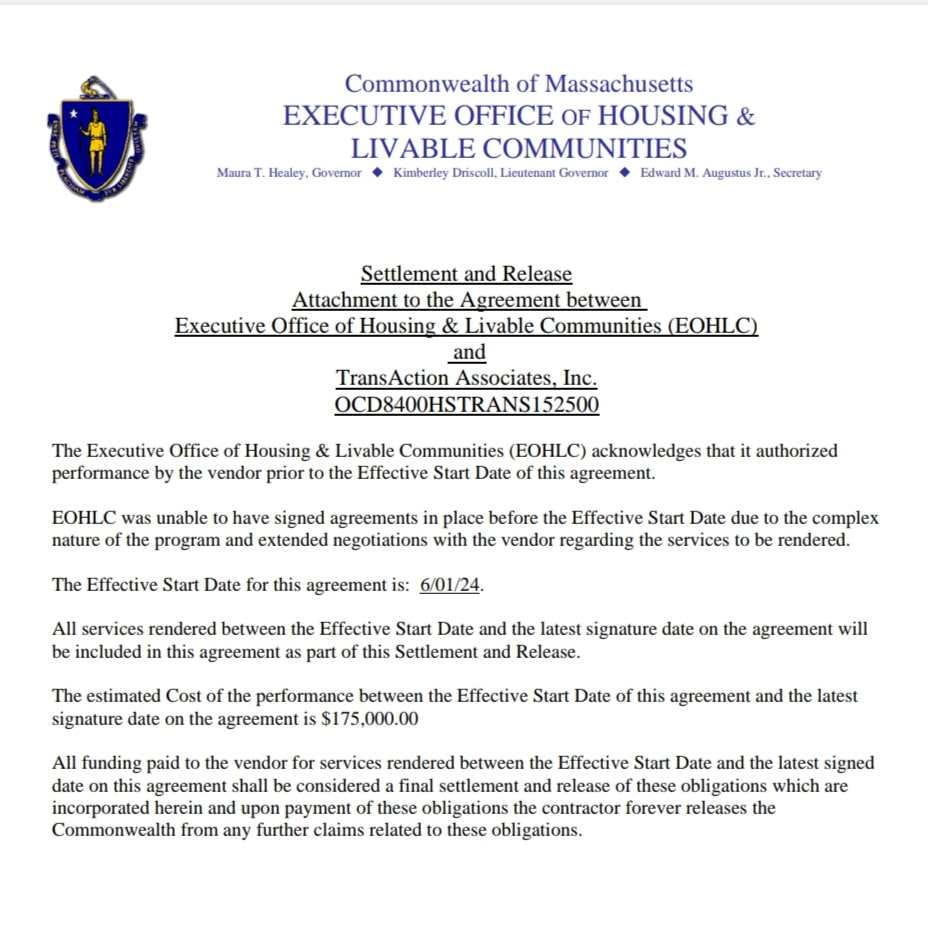The Never Ending Massachusetts State of Emergency
The current State of Emergency has been in place since 2023
The Commonwealth of Massachusetts has issued fourteen State of Emergency declarations since 2011. Of those fourteen, eleven of them were weather related (hurricanes, nor’easters and flooding), one was for the Merrimack Valley Gas Explosion and one was for the COVID-19 pandemic.
9/15/23 to 9/16/23 Hurricane Lee
9/12/23 to 9/16/23 Severe Weather & Flooding
8/8/23 Pending Shelter Capacity Crisis
3/10/20 to 5/11/23 COVID-19 Pandemic
9/14/18 to 10/4/18 Merrimack Valley Gas Explosion
3/3/18 to 3/6/18 Coastal Storm
2/9/15 to 2/25/15 Winter Storm
1/26/15 to 1/28/15 Winter Storm
2/8/13 to 2/13/13 Winter Storm
10/27/12 to 11/1/12 Hurricane Sandy
10/29/11 to 11/7/11 Nor'easter
8/26/11 to 9/6/11 Hurricane Irene
6/1/11 to 6/2/11 Tornadoes (& 6/19/11)
1/12/11 to 1/13/11 Winter Storm
But unknown to many is that Governor Maura Healey declared a State of Emergency in August of 2023, listing it as a “Shelter Capacity Crisis” as the Biden Administration began to fly thousands of migrants into Logan International Airport with no notice.
In her declaration, which you can read here, she cited “rapidly rising numbers of migrant families arriving in Massachusetts in need of shelter and service and a severe lack of shelter availability in the state.”
Healey included in her declaration a letter to then Secretary of Homeland Security Alejandro Mayorkas asking for federal assistance:
“I am declaring a state of emergency in Massachusetts and urging my partners in the federal government to take the action we need to address this crisis by streamlining the work authorization process and passing comprehensive immigration reform.”
18 months later, the state of emergency remains in place, with no end in sight. Aside from the COVID-19 issued state of emergency, no other declaration has lasted as long, with most state of emergency orders averaging just one month in length.
While researching many of the contracts the state has with companies to provide services to assist in the Massachusetts migrant and shelter crisis, it was not uncommon to see the word “emergency” being used in documents obtained through public records requests. For example, in a request for a contract with the companies providing transportation services to the migrants staying at the the Clarion Hotel in Taunton, a request for responses indicated the state was seeking “emergency assistance transportation services”
TransAction Associates, Inc was ultimately awarded a contract with the Executive Office of Housing and Livable Communities (EOHLC) but before that contract was in place, EOHLC permitted the company to begin providing transportation services, citing the complex nature of the emergency program:
Likewise, in the contract between EOHLC and Eliot Community Human Services, Inc., “emergency” is mentioned several times:
The contract itself is designated an “emergency”:
The sense of urgency surrounding the term “emergency” often lends to providing services fast and that means, not always caring about costs. This past December, the CATO Institute published their recommendations to the Department of Government Efficiency regarding emergency spending. Stating fraud, waste and abuse of tax dollars at a federal level, CATO suggests limiting emergency declarations issued by the president to just 30 days.
“Emergency spending surges, such as during the Great Recession and COVID-19 pandemic, are often initiated before the full scope of the emergency is fully understood, exacerbating waste, fraud, and abuse. At least $1 in every $10 of pandemic relief funds was estimated to have been stolen, wasted, or misspent. Furthermore, tens of billions in emergency funds are regularly misused for predictable, nonemergency priorities, such as annual law enforcement salaries. This violates statutory criteria for emergency designations: necessary, sudden, urgent, unforeseen, and temporary.”
Interestingly enough, the Mass.gov website regarding state of emergencies says that financial assistance to individuals or communities is not always a given during a disaster.
But with the 40-year-old “Right to Shelter” law in Massachusetts, why is the state of emergency declaration still in place? Healey’s interpretation of an emergency might be the problem.
This past October, Healey signed an emergency preamble to fast-track the implementation of bill H.4885, An Act Modernizing Firearms Law. The preamble allowed the law to take effect immediately under the supposed urgency of public peace, health, safety and convenience.
The latest “real” emergency facing the Healey administration? How to pay for the migrant crisis. Funding runs out this month.










I have sent this article to my State Senator, Jason Lewis and my State Rep., Michael Day, and asked for a response. When the phone doesn't ring!
Makes my decision to move from my beautiful home state seem like a good move!! Wish people would think before they vote!